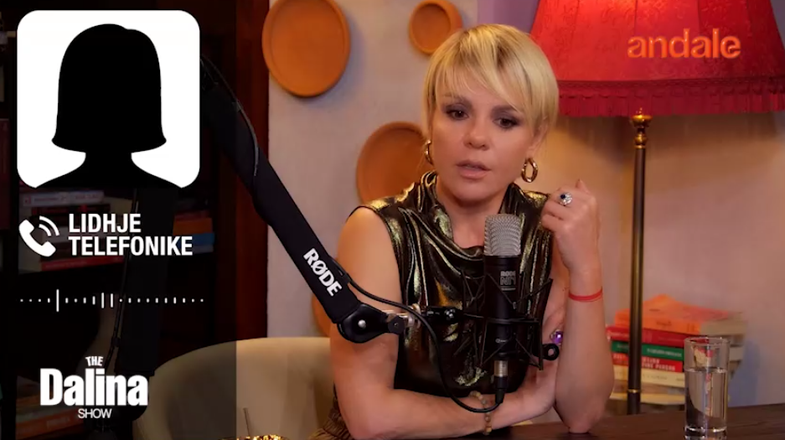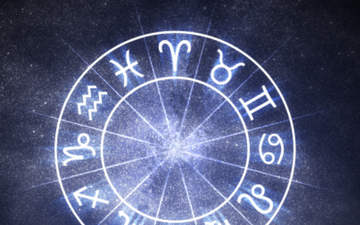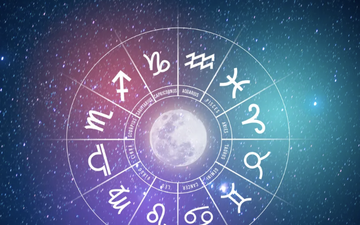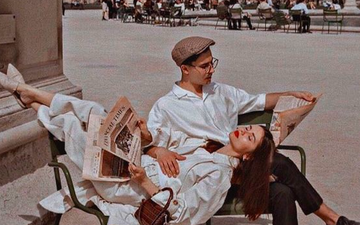
In a heartbreaking episode of “The Dalina Show ,” three Albanian women shared their darkest and most painful stories – which, however, are also their journeys to healing. They are Dea, Jola and Zana. Each has gone through deep trauma that has left indelible marks, but they all share an extraordinary strength to survive and help other women not feel alone.
Dea – The hidden violence of the nanny
“My family was an immigrant in the 1990s, starting in 1991, and my mom and dad worked non-stop, from Monday to Sunday.” Thus begins the shocking story of Dea, a woman who recalls her childhood of 5 years in Greece, when her parents, busy working to survive as immigrants, entrusted her daily care to a Greek nanny. “I had three nannies, the first two were very good, the third was a Greek lady.”
But this third, with an open hatred of Albanians – “you are a Turko-Albanian, you are a stinking child, you are a difficult child” – isolates Dean for three months in a dark basement, without water, without bread. “They would take me at 6 in the morning and pick me up at 5 in the afternoon.” Instead of taking care of him, the nanny sent him straight to the basement. “When she picked me up, she would take my bag with the food that my mother prepared for me and take me down to the basement... only when it was time for my parents to pick me up, she would take me out to the living room and pretend to play with me.”
Physically punished, insulted and scared, Dea did not have the courage to talk to her parents. “If you tell mom and dad I will kill them both... As a child I believed him and thought he would kill me and I would be left alone.” For three months, she did not tell anyone. “My mom only realized when I became very weak and anemic. The doctor told her I was going into anorexia.”
He remembers the darkest moment of that time like this: "One day, the nanny left, she ran away with her son. I heard the door slam, mom and dad were late more than necessary that day... I knocked on the door, no one answered, I was scared like a child." Until a passerby heard him screaming for help from the small basement window: "There I saw a human face for the first time."
The police came immediately and rescued him. But there was no justice. “The police had told my father that if he filed a lawsuit, they would revoke his visa. Because then they only wanted to tarnish the names of Albanians, not Greeks.” Later, the father apologized to Dea. “Just a short time ago, my father apologized to me, saying that maybe he should have acted differently.”
Sot, Dea është nënë e dy fëmijëve, 4 dhe 1 vjeç, dhe frika që ka përjetuar si fëmijë është bërë një ndjenjë konstante në jetën e saj. “Kam hequr dorë nga puna që të kujdesem për ta. S’dua t’i lë me ankth ose të izoluar prej frikës sime.”
I mëson fëmijët të flasin për gjithçka që ndiejnë. Por vetë, netëve të vona, përballet ende me hijet e të kaluarës: “Nga ajo traumë më kthehen natën, imazhet e asaj periudhe... Mbaj gjithmonë një dritare hapur sepse më duket sikur nuk mbushem dot me frymë.” Dhe ndonjëherë, në ëndërr, ndodh kjo: “Shikoj shpesh një ëndërr sikur shpëtoj një vajzë të vogël të cilën e shpëtoj nga rreziku dhe kur e përqafoj ndihem unë si e shpëtuara apo e mbrojtura.”
Jola – Dhuna e 2 prindërve që s'ditën t'i dhurojnë dashuri
Jola është vajza më e madhe nga tre fëmijë dhe, siç thotë ajo, “kam pasur dhunë nga të dy prindërit, por kisha urrejtje ndaj mamit sidomos gjatë adoleshencës.” Në një familje ku ndjenjat ishin turp dhe heshtja ishte normë, Jola mbeti e papranueshme dhe e padëgjuar. “Ata s’dinë asgjë për jetën time sepse ishte turp të flisje për ndjenjat.”
Nëna, që ndoshta ishte viktimë e burrit, ia transmetoi asaj gjithë dhunën dhe kontrollin që vetë përjetonte: “Mami më gjuante kur nuk pastroja, më shihte para pasqyrës dhe më thoshte ‘çfarë të duket vetja, je një copë m*ti’.” Asaj nuk i lejohej të kishte hobi apo kohë për veten. “Leximin kam pasur arratisje... lexoja natën sepse po të më shihte mami ditën më bërtiste, më thoshte pse humbet kohën kot.”
Për shumë vite, ndjente që s’dinte të vendoste kufij. “Fajësoja veten pse s’u rebelova ndaj prindërve, njerëzve që më manipulonin.” Terapinë e nisi kur pa se po bëhej vetë si nëna e saj: “Kur bëra fëmijët e mi, shihja që po bëhesha si mami.” Sot, është në paqe vetëm sepse zgjodhi të bëjë ndryshe: “Kam krijuar një marrëdhënie shumë të mirë me vajzën time, flasim për gjithçka.”
Me prindërit, është ftohur. “Ata mendojnë tani se jemi shumë mirë. S’më njohin fare... më vjen inat sepse bëjnë sikur s’ka ndodhur asgjë.” Nëna e saj sot e telefonon më shumë nga frika e vetmisë: “Na thonë madje që ‘për vete ju kemi bërë dhe duhet t’i mbajmë me lekë se e kemi për detyrë.’”
Zana – Trauma nga vetëvrasja e papritur e babait
“Isha 16 vjeç, isha në shkollë të mesme, pashë në oborrin e shtëpisë një ambulancë... s’më lejuan të futem brenda në shtëpi.” Fillimisht, Zana nuk e kuptoi se çfarë kishte ndodhur. Më pas, në telefon, dëgjoi dikë t’i thoshte: “Më vjen keq për humbjen tënde, ngushëllime për babin.” Ishte e papërgatitur. Babai i saj ishte vetëvarur në dhomën e ndenjjes.
“Mendimi i parë kur e mora vesh... mbaj mend që kalova shok, fillova të qaja. Thashë si ka mundësi.” Ishte njeri i mbyllur, por i dashur, një figurë e fortë: “Ai ka qenë njeri shumë i mirë, ka qenë profesor, inxhinier, shumë i realizuar, e quaja enciklopedi që ecën.”
She recalls how he had recently become interested in suicide cases in Kosovo: “He would ask questions, ‘what could have been going through their minds when they made those decisions?’” When her father left, he left not only a void, but many questions that have not been answered even today: “I felt betrayed for a long time... how could he have left us alone?”
After her death, society's judgment also began: "I felt like killing those people who said 'wasn't he good?!'" Her mother was also accused of inattention: "How could she not understand, how could I not have talked to her?"
But for Zana, this story is not over. The episode of her story will continue next week on "The Dalina Show", where we will learn more about her dealing with pain, judgment and how she has chosen to live with the absence of her father.
Stories like these are not easy to hear. But they are necessary.
They show that many wounds are not visible, and that behind every woman who carries a family on her shoulders, a childhood filled with blood can be hidden by silence. In “The Dalina Show,” we don't just have stories, we have testimonies. And testimonies are the first step towards healing.
Follow the full stories in the video below:





